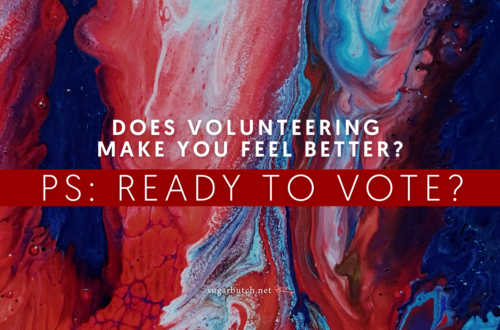Sex In The Public Square Presents:
Sex Work, Trafficking, and Human Rights: A Public Forum
New York, February 20, 2008 – Ten prominent sex worker advocates, writers, researchers will be publicly discussing the issues of sex work and trafficking from a human rights and harm reduction perspective, February 25 – March 3, on SexInThePublicSquare.org. The week-long online conversation will conclude with a summary statement on March 3, International Sex Worker Rights Day.
Sex work and trafficking are two issues that must be discussed as distinct yet intersecting, and we’ve invited some of the smartest sex worker advocates we know to help sort out the complexities. “This forum is not about debating whether or not we should be using a harm reduction and human rights approach instead of the more mainstream abolitionist and prohibitionist approach to sex work,” explains Elizabeth Wood, co-founder of Sex In The Public Square and Assistant Professor of Sociology at Nassau Community College. “Instead our goal is to create a space for nuanced exploration of the human rights and harm reduction approach so that we can use it more persuasively.”
Wood explains: “The human rights and harm reduction approach seeks to reduce the dangers that sex workers face and to stop human rights abuses involved in the movement of labor across borders, a movement which occurs in the service of so many industries. We want people to be able to learn about this perspective, and to develop and refine it, without having to dilute that conversation by debating the legitimacy of sex work.”
Questions and themes include:
Defining our terms: Is the way that we define “porn” clear? “Prostitution”? “Sex work” in general? What happens when we say “porn” and mean all sexually explicit imagery made for the purpose of generating arousal and others hear “porn” as indicating just the “bad stuff” while reserving “erotica” for everything they find acceptable? When we say sex work is it clear what kinds of jobs we’re including?
Understanding our differences: How do inequalities of race, class and gender affect the sex worker rights movement? Are we effective in organizing across those differences?
Identifying common ground: What are the areas of agreement between the abolitionist/prohibitionist perspective and the human rights/harm reduction perspective? For example, we all agree that forced labor is wrong. We all agree that nonconsensual sex is wrong. Is it a helpful strategic move to by highlighting our areas of agreement and then demonstrating why a harm reduction/human rights perspective is better suited to addressing those shared concerns, or are we better served by distancing ourselves from the abolition/prohibition-oriented thinkers?
Evaluating research: What do we think of the actual research generated by prominent abolitionist/prohibitionist scholars like Melissa Farley, Gail Dines, and Robert Jensen? Can we comment on the methods they use to generate the data on which they base their analysis, and then can we comment on the logic of their conclusions based on the data they have?
Framing the issues: What are our biggest frustrations with the way that the human rights/harm reduction perspective is characterized by the abolitionist/prohibitionist folks? How can we effectively respond to or reframe this misrepresentations? What happens when “I oppose human trafficking” becomes a political shield that deflects focus away from issues of migration, labor and human rights?
Exploring broader economic questions: How does the demand for cheap labor undermine human rights-based solutions to exploitation in all industries, including the sex industry?
Confirmed participants include:
Melissa Gira is a co-founder of the sex worker blog Bound, Not Gagged, the editor of Sexerati.com, and reports on sex for Gawker Media’s Valleywag.
Chris Hall is co-founder of Sex In The Public Square and also writes the blog Literate Perversions.
Kerwin Kay has written about the history and present of male street prostitution, and about the politics of sex trafficking. He has been active in the sex workers rights movement for some 10 years. He also edited the anthology Male Lust: Pleasure, Power and Transformation (Haworth Press, 2000) and is finishing a Ph.D. in American Studies at NYU.
Anthony Kennerson blogs on race, class, gender, politics and culture at SmackDog Chronicles, and is a regular contributor to the Blog for Pro-Porn Activism.
Antonia Levy co-chaired the international “Sex Work Matters: Beyond Divides” conference in 2006 and the 2nd Annual Feminist Pedagogy Conference in 2007. She teaches at Brooklyn College, Queens College, and is finishing her Ph.D. at the Graduate Center at CUNY.
Audacia Ray is the author of Naked on the Internet: Hookups, Downloads and Cashing In On Internet Sexploration (Seal Press, 2007), and the writer/producer/director of The Bi Apple. She blogs at WakingVixen.com hosts and edits Live Girl Review and was longtime executive editor of $pread Magazine.
Amber Rhea is a sex worker advocate, blogger, and organizer of the Sex 2.0 conference on feminism, sexuality and social media and co-founder of the Georgia Podcast Network. Her blog is Being Amber Rhea.
Ren is a sex worker advocate, a stripper, Internet porn performer, swinger, gonzo fan, BDSM tourist, blogger, history buff, feminist expatriate who blogs at Renegade Evolution. She is a founder of the Blog for Pro-porn Activism and a contributor to Bound, Not Gagged and Sex Worker Outreach Project – East.
Stacey Swimme has worked in the sex industry for 10 years. She is a vocal sex worker advocate and is a founding member of Desiree Alliance and Sex Workers Outreach Project USA.
Elizabeth Wood is co-founder of Sex In The Public Square, and Assistant Professor of Sociology at Nassau Community College. She has written about gender, power and interaction in strip clubs, about labor organization at the Lusty Lady Theater, and she blogs regularly about sex and society.
To read or participate in the forum log on to http://sexinthepublicsquare.org
For more information contact Elizabeth Wood at elizabeth (at) sexinthepublicsquare (dot) org.




Thanks, Sinclair! I hope we see you and lots of your readers checking us out as we explore the topics. I really think this is an idea whose time has come.